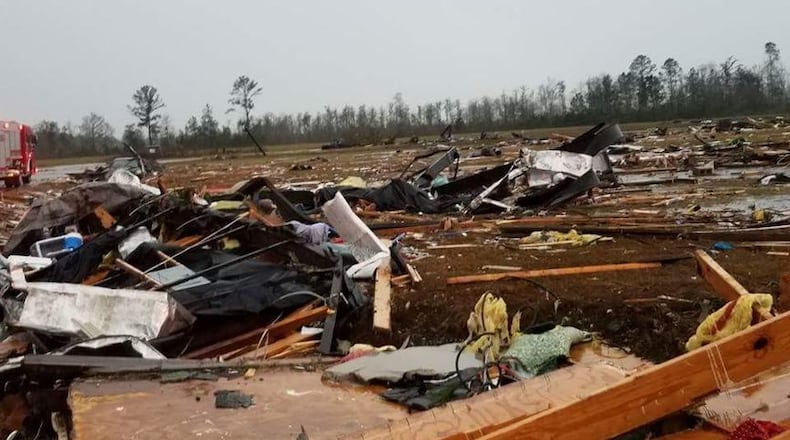The National Weather Service has some simple and urgent advice for mobile homes residents when tornadoes are on the way: Get out and go to the nearest sturdy building or storm shelter.
“We tell people that are in mobile homes or trailers to find somewhere else to be because those are the worst places you could possibly be,” said David Nadler, a National Weather Service meteorologist based in Peachtree City.
Georgia ranks fifth among states for its number of mobile homes — or manufacture houses — with 381,978, according to the Virginia-based Manufactured Housing Institute, a national trade organization. About 70,000 are in the metro Atlanta area, according to the U.S. Census Bureau. Of those, at least 14,900 are not anchored.
Deadly storms killed at least 11 people and injured 23 in South Georgia Sunday, prompting Gov. Nathan Deal to declare a state of emergency in seven counties. The circumstances surrounding those fatalities were unclear Sunday. But of those killed, seven died at a mobile home park in Cook County, Coroner Tim Purvis told The Atlanta Journal-Constitution.
The average annual tornado-related death rate in mobile homes is 20 times higher than in permanent homes, according to the National Weather Service. And between 1985 and 2005, mobile homes were the most common location for tornado-related fatalities at 44 percent, followed by permanent homes at 25.3 percent and vehicles, 9.9 percent. Mobile homes accounted for between 5 percent and 8 percent of all housing units in the nation during that period.
Manufactured home safety has substantially improved over the years, and the industry is now regulated in Georgia by state and federal officials, said Jay Hamilton, executive director of the Georgia Manufactured Housing Association. The manufactured homes being built today must be anchored down and withstand high winds, he said.
“When it comes to tornadoes, you should not be in any housing. You should be in a basement or a designated storm shelter,” Hamilton said. “A tornado is like cancer. It is does not discriminate on the type of housing.”
About the Author
The Latest
Featured



